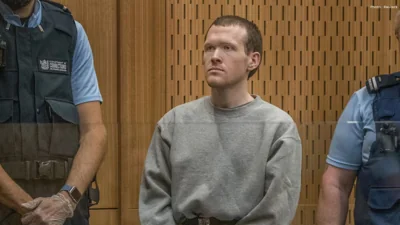
Post by : Saif Nasser
Energy drinks have become very popular, especially among young people and office workers. These drinks promise to give quick energy, help you stay awake, and improve focus. Many students drink them during exams, and professionals use them to work long hours. But doctors now warn that too much of these drinks can quietly harm your body.
The Quick Boost — and the Hidden Cost
Energy drinks make you feel fresh and active because of caffeine and other strong ingredients like guarana and taurine. These chemicals wake up the brain and make the heart beat faster. For a short time, you feel alert and full of energy. But soon after, your body starts to feel tired again, and you may even become dependent on the drink.
According to Dr. Kunal Sood, a pain medicine specialist, “Energy drinks can feel like a quick fix for tiredness and focus, but they also affect the heart, sleep, and key nutrients.” His message is clear — what feels like help today can become harm tomorrow.
How Energy Drinks Affect the Heart
Dr. Sood explains that energy drinks can increase blood pressure and heart rate more than coffee. Because these drinks mix caffeine with other stimulants, they make the heart work harder than usual. For healthy people, this may not cause big problems right away. But for those who already have heart issues or high blood pressure, the risk becomes serious.
He warns that if someone feels their heart pounding, or experiences dizziness after drinking an energy drink, they should stop immediately and talk to a doctor.
The Sleep Problem
Many people drink energy drinks in the afternoon or evening to stay awake. But caffeine in these drinks blocks a brain chemical called adenosine, which helps the body fall asleep. This makes it harder to rest at night.
Even drinking an energy drink during the day can affect your sleep later. Studies have shown that people who drink them often sleep fewer hours and suffer from insomnia.
A large study of more than 50,000 college students found that drinking even one to three cans a month can lead to poor sleep and tiredness. For teenagers, it reduces their chances of getting the recommended 8 hours of sleep.
Losing Important Minerals
Dr. Sood also mentions that energy drinks can cause the body to lose magnesium, an important mineral for muscles and the heart. After drinking them, your body may pass out more magnesium through urine for a few hours.
If you already have a low-magnesium diet or sweat a lot, this loss can make you weak or cause muscle cramps and headaches. People who drink these beverages often should eat magnesium-rich foods like spinach, nuts, and bananas.
How Much Is Safe?
The U.S. Food and Drug Administration (FDA) says that adults can safely consume up to 400 milligrams of caffeine per day. However, many energy drinks contain 150 to 300 milligrams in a single can. Some “energy shots” go even higher.
For teenagers, the limit is much lower — doctors advise keeping caffeine under 100 milligrams per day or avoiding energy drinks completely. Children should not drink them at all.
Why People Keep Drinking Them
Despite these warnings, energy drinks continue to sell because they promise instant energy. Many people don’t realize that the feeling of alertness is only temporary. Once the caffeine wears off, you may feel even more tired than before. Over time, this habit can lead to dependence — where your body feels it cannot function without caffeine.
A Smarter Way to Boost Energy
Doctors suggest natural ways to stay alert and active:
Drink water often. Dehydration makes you tired.
Eat healthy snacks like fruits or nuts instead of drinking sugar-filled beverages.
Get enough sleep. A good night’s rest is the best energy booster.
Exercise regularly to improve blood flow and brain activity.
Take short breaks from screens and work to refresh your mind.
A Warning for the Young Generation
Energy drinks are often marketed with bright packaging and slogans that attract young people. But the hidden truth is that these drinks are not harmless. Over time, they can damage the heart, disturb sleep, and affect mental health.
Dr. Sood’s message is simple: use caution. A single can once in a while may not harm you, but drinking them regularly can slowly hurt your health.










Mattel Revives Masters of the Universe Action Figures Ahead of Film Launch
Mattel is reintroducing Masters of the Universe figures in line with its upcoming film, tapping into

China Executes 11 Members of Criminal Clan Linked to Myanmar Scam
China has executed 11 criminals associated with the Ming family, known for major scams and human tra

US Issues Alarm to Iran as Military Forces Deploy in Gulf Region
With a significant military presence in the Gulf, Trump urges Iran to negotiate a nuclear deal or fa

Copper Prices Reach Unprecedented Highs Amid Geopolitical Turmoil
Copper prices soar to all-time highs as geopolitical tensions and a weakening dollar boost investor

New Zealand Secures First Win Against India, Triumph by 50 Runs
New Zealand won the 4th T20I against India by 50 runs in Vizag. Despite Dube's impressive 65, India